A customer relationship management (CRM) tool is probably the most important tool any business could invest in. After all, what’s more crucial than maintaining relationships with your current and prospective customers?
While Salesforce is often viewed as the industry leader in CRM solutions, it may not be the best fit for every organization.
You might be looking for tools similar to Salesforce that provide specific features, pricing models, or ease of use that align more closely with your unique business needs.
So, in this article, I will help you explore various Salesforce alternatives that could better serve your requirements and help streamline your sales processes.
Disclaimer: If you buy any products through links on this site, I may earn a commission. But it doesn't make any difference to your cost, and it helps me keep this blog running. So you could always read my articles for free.
Why consider Salesforce alternatives?
Salesforce is one of the most well-known customer relationship management (CRM) tools, offering a wide range of features. However, you might find that Salesforce isn’t the perfect fit for your business.
You may run into challenges like high pricing, complex customization requirements, or features you don’t fully need.
Considering Salesforce competitors allows you to explore tools that align better with your specific business needs.
Some alternatives offer more straightforward setups, more affordable pricing plans, or specialized features for niche industries.
If you manage a small team or prefer a simpler solution, lightweight CRMs can help you focus on relationship-building rather than navigating complex software.
Also, many options come with excellent integrations and support that can reduce the learning curve.
Top Salesforce alternatives
Going through these alternatives will help you ensure that you’re using the best tool to streamline your operations, improve customer experience, and maximize your investment. So, let’s begin.
Nutshell
Nutshell is a more affordable and user-friendly Salesforce alternative that still packs powerful features.
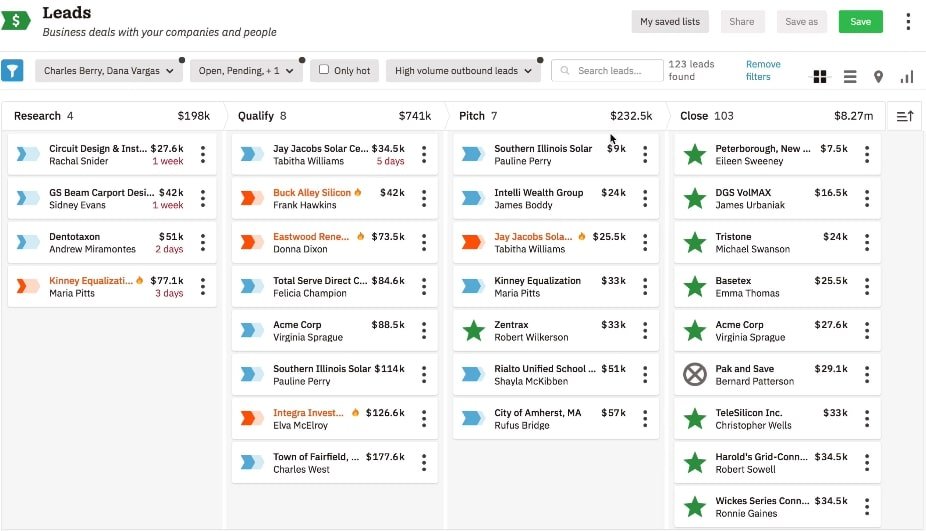
With Nutshell, you get a wide range of sales, marketing, and engagement capabilities that help your teams work together to grow your business.
The platform includes core CRM features like contact and pipeline management, sales automation, and reporting. Its marketing features include email marketing, SMS, and a drag-and-drop landing page builder. On the engagement side, you have tools like web chat and 1:1 SMS.
Nutshell also includes powerful AI features like AI agents, email writing assistance, and contact timeline summarization.
One of the major advantages of choosing Nutshell over Salesforce is Nutshell’s free live customer support, transparent pricing without contracts, and unlimited data storage and contacts.
You’ll also enjoy fast, free implementation and a tool with a user-friendly interface.
Freshworks CRM
If you’re looking for a more straightforward, budget-friendly solution, Freshworks CRM might be the perfect fit among alternatives to Salesforce.
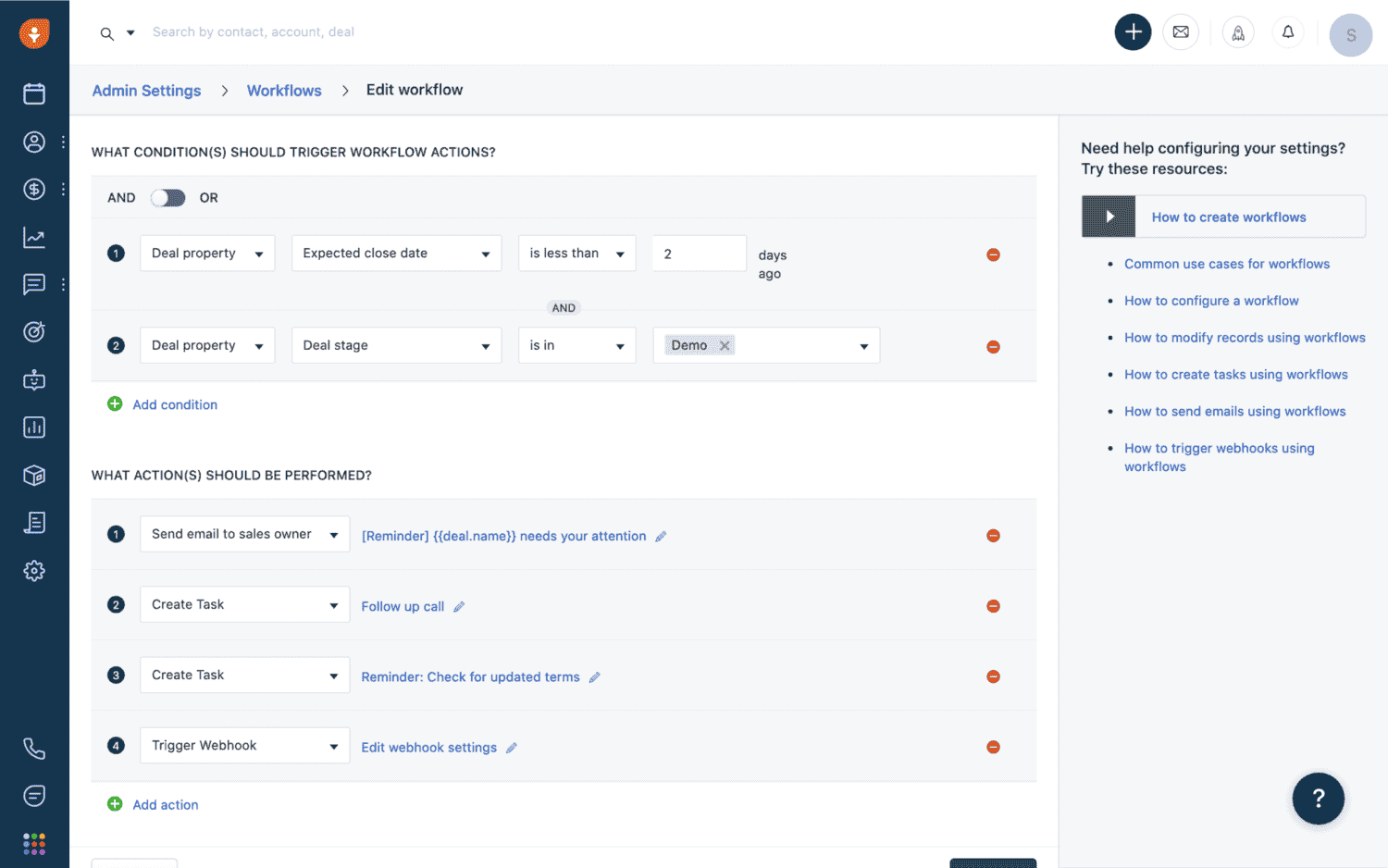
It offers a variety of features to help you manage customer relationships, track deals, and automate workflows, all with an intuitive interface.
Freshworks CRM focuses on simplicity and ease of use, making it ideal if you want to avoid the steep learning curve of complex platforms.
You’ll also benefit from flexible pricing plans that cater to businesses of different sizes, so you only pay for the features you need.
It integrates well with commonly used tools like email, chat, and marketing platforms, helping you keep everything connected without hassle.
With built-in AI features, Freshworks CRM lets you automate routine tasks and capture insights about customer behavior. If you value efficiency and affordability, it’s worth exploring this choice.
SugarCRM
If you’re seeking a more flexible and cost-effective solution, SugarCRM could be a great Salesforce alternative.
It offers robust features for sales automation, marketing campaigns, and customer support, giving you control over every stage of the customer journey.
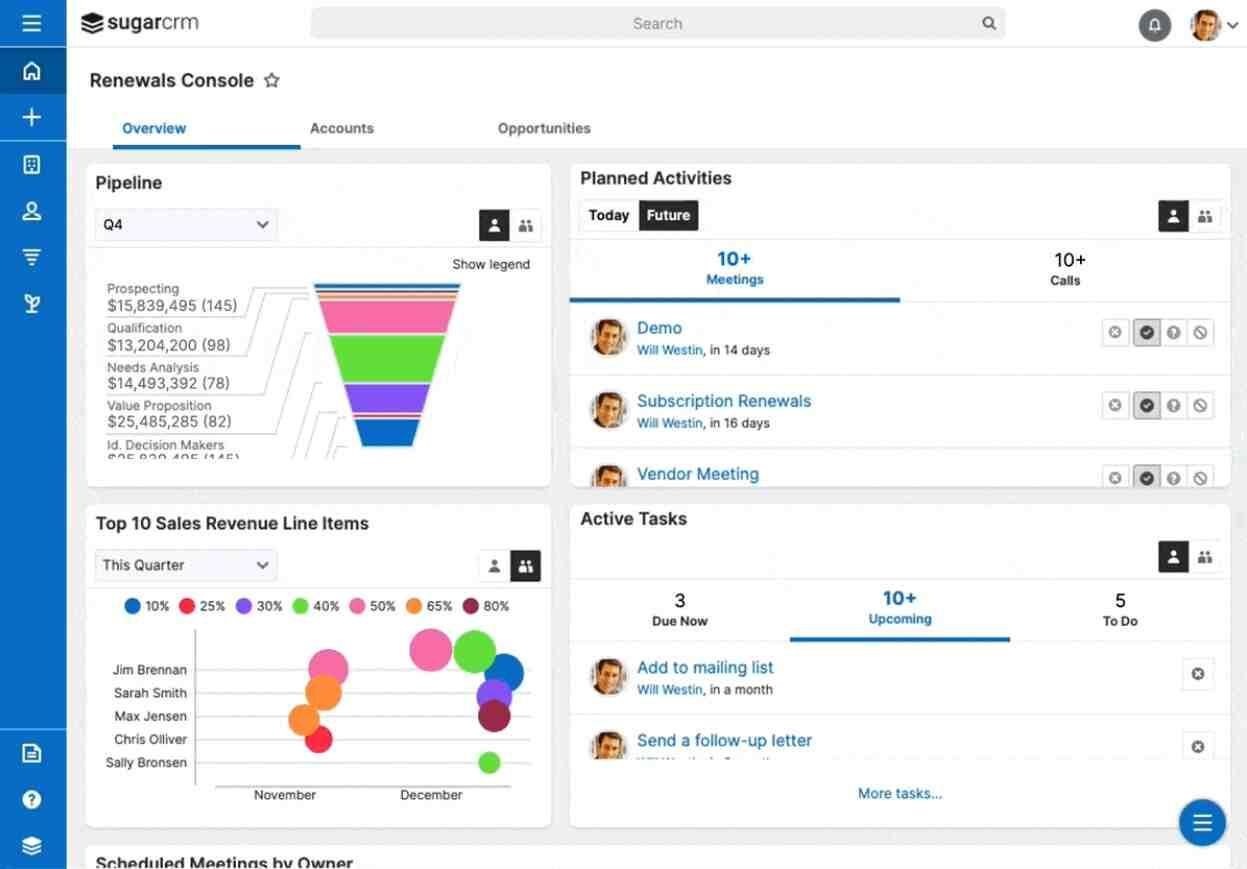
SugarCRM stands out for its flexibility—whether you want to host it on the cloud or on your own servers, you get full control over customization.
If data privacy is a priority, this option lets you tailor deployments to meet specific compliance requirements. Additionally, its straightforward interface means you’ll have a short learning curve, making it easier for your team to adopt.
With transparent pricing and no hidden fees, SugarCRM ensures you get value without surprises. If you need a scalable solution with more control over customization, SugarCRM is worth considering.
Hubspot CRM
HubSpot CRM offers a user-friendly, affordable alternative that’s perfect if you’re looking for simplicity without sacrificing functionality.
With HubSpot, you can manage contacts, track deals, and automate tasks—without the steep learning curve.
One of HubSpot’s biggest advantages is its free plan, which includes essential CRM tools like contact management, email tracking, and task automation.
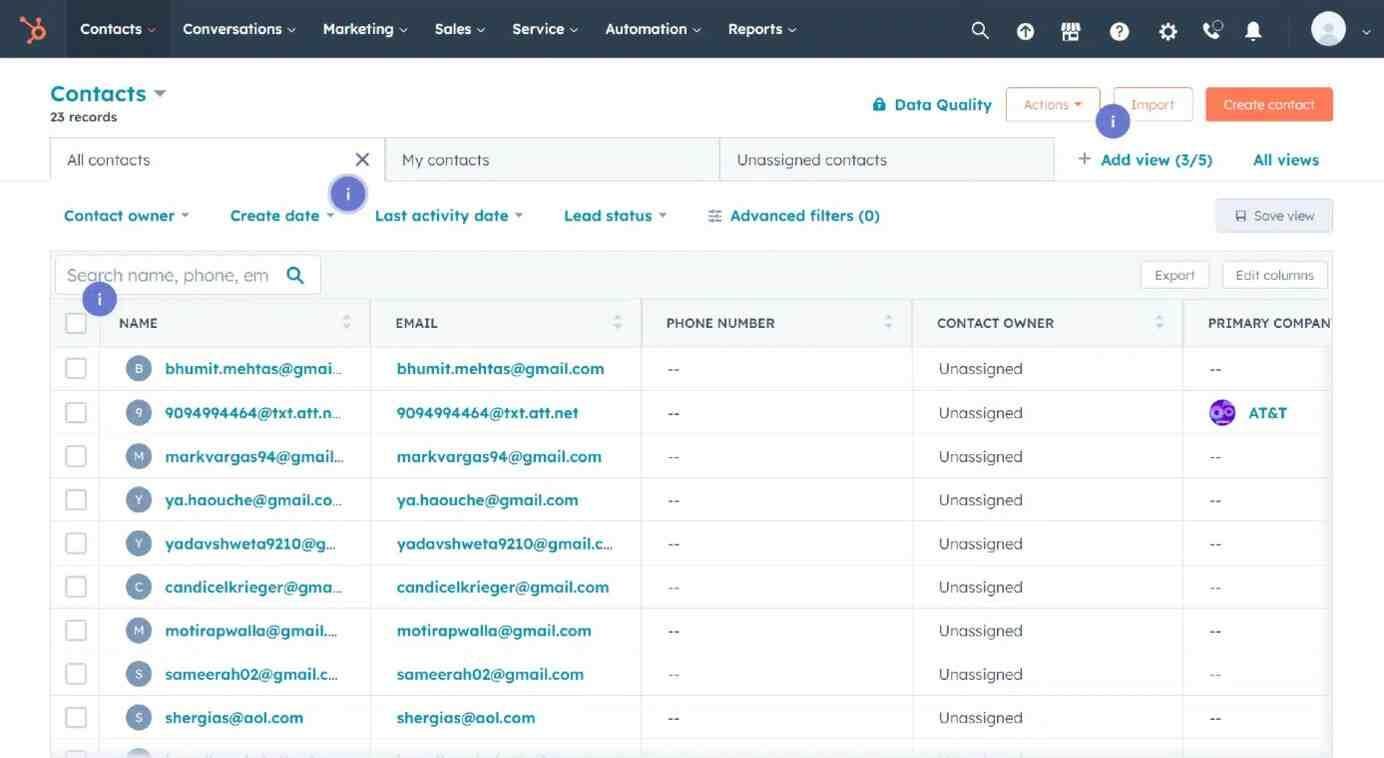
As your business grows, you can unlock more advanced features through paid tiers, but even the upgrades are budget-friendly compared to Salesforce.
HubSpot’s CRM integrates seamlessly with its marketing, sales, and customer service hubs, making it a great choice if you want an all-in-one platform.
You’ll also enjoy access to valuable insights, helping you make data-driven decisions. If ease of use, affordability, and integrated marketing tools are top priorities for you, HubSpot CRM is one of the strong alternatives to Salesforce.
Microsoft Dynamics
Microsoft Dynamics offers a powerful system like Salesforce, especially if your business already relies on Microsoft tools like Outlook, Teams, or Excel. With Dynamics, you get a robust platform that combines sales, marketing, and customer service features.
One key benefit is its smooth integration with Microsoft 365 and Azure, which helps you streamline workflows across your existing systems.
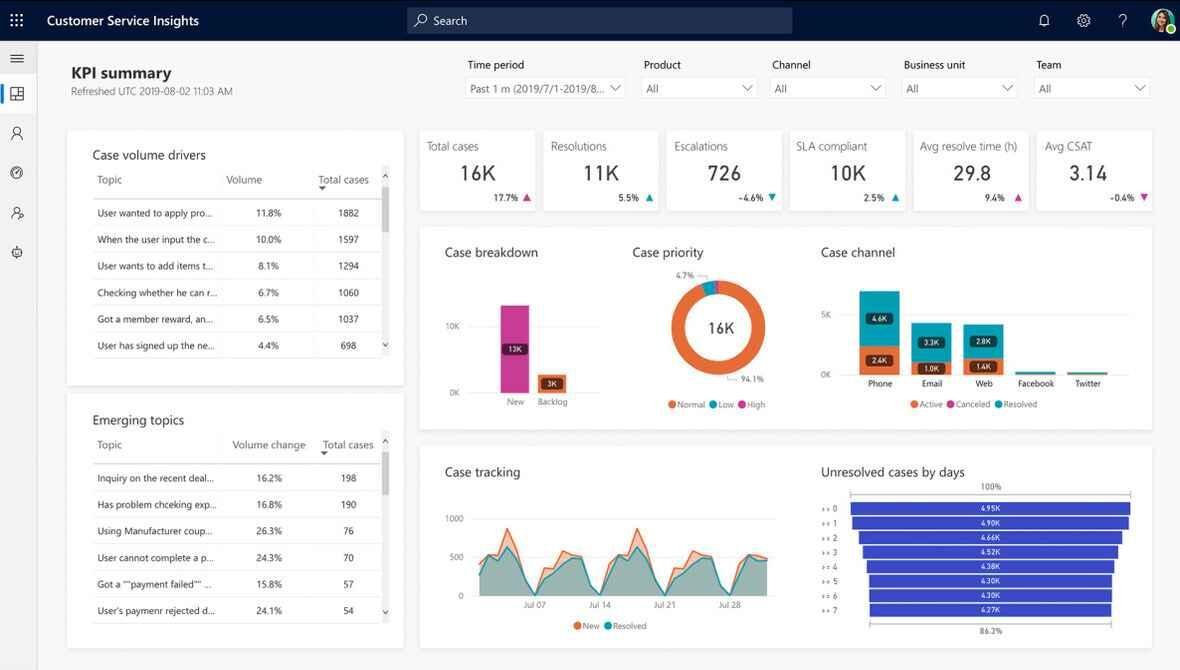
You can also customize Dynamics to fit your business processes without the need for heavy technical expertise. If you value data insights, the platform’s built-in AI features provide predictive analytics to improve decision-making.
This Salesforce alternative offers flexible deployment options—whether you prefer the cloud or on-premises—allowing you greater control.
It’s a great choice if you want a scalable CRM solution that aligns with familiar Microsoft tools and helps boost productivity across teams.
Zoho CRM
Zoho CRM isn’t a direct competitor to Salesforce, as it’s not meant for extremely large businesses. But if you’re a small or medium-sized enterprise, Zoho’s high-powered is more than enough to handle your sales or customer service needs.
Zoho CRM offers one of the most flexible and affordable alternatives to Salesforce, especially if you’re looking for an easy-to-use platform. Zoho CRM helps you manage leads, automate tasks, and track customer interactions without overwhelming your team.
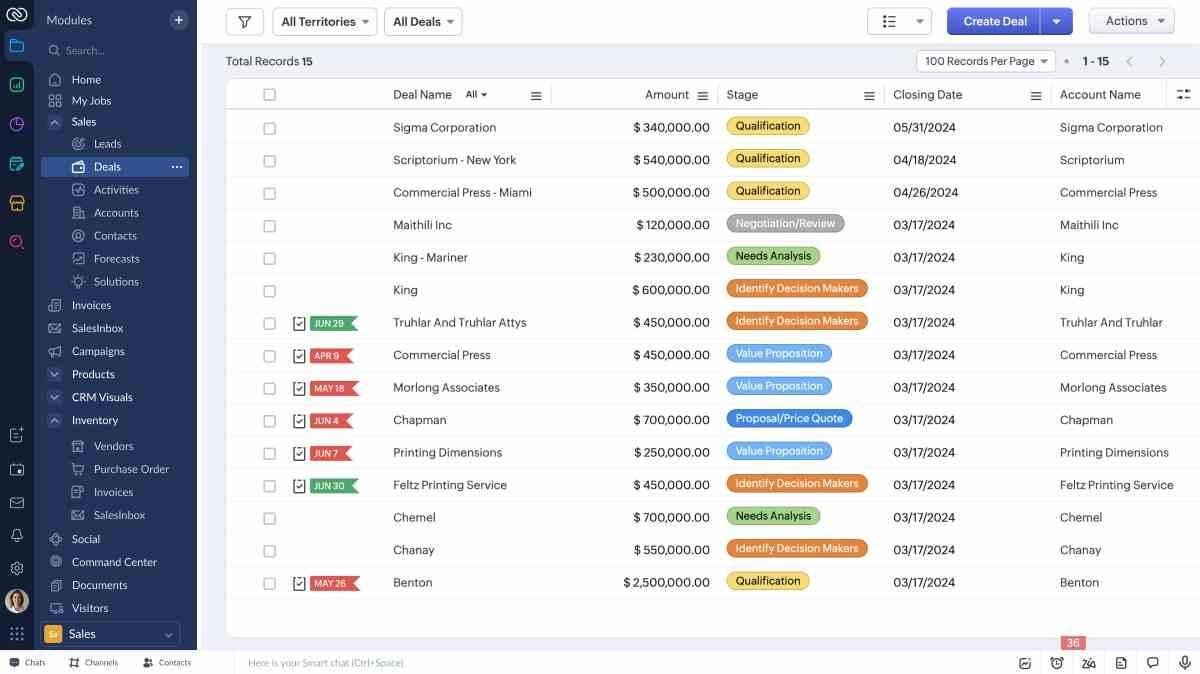
One of Zoho’s strengths is its scalability—you can start with a basic plan and unlock advanced features as your business grows.
It also integrates smoothly with other Zoho apps and popular tools like Gmail, Slack, and social media platforms, keeping your operations connected.
Zoho CRM stands out with its customization options, letting you tailor modules and dashboards to fit your workflow. Additionally, its AI assistant, Zia, helps you forecast sales, automate tasks, and analyze customer data.
If you’re after a user-friendly, budget-conscious tool that grows with your needs, Zoho CRM is definitely worth exploring.
Pipedrive
If Salesforce feels too complex or expensive for your business, Pipedrive offers a streamlined alternative focused on helping you close deals faster.
Designed with sales teams in mind, Pipedrive emphasizes simplicity and productivity. This makes it an excellent choice if you need a straightforward CRM to manage your pipeline.
With this Salesforce alternative, you can visually track deals through customizable pipelines, ensuring you stay on top of every sales opportunity. Its automation features reduce manual tasks, so you can focus on connecting with prospects.
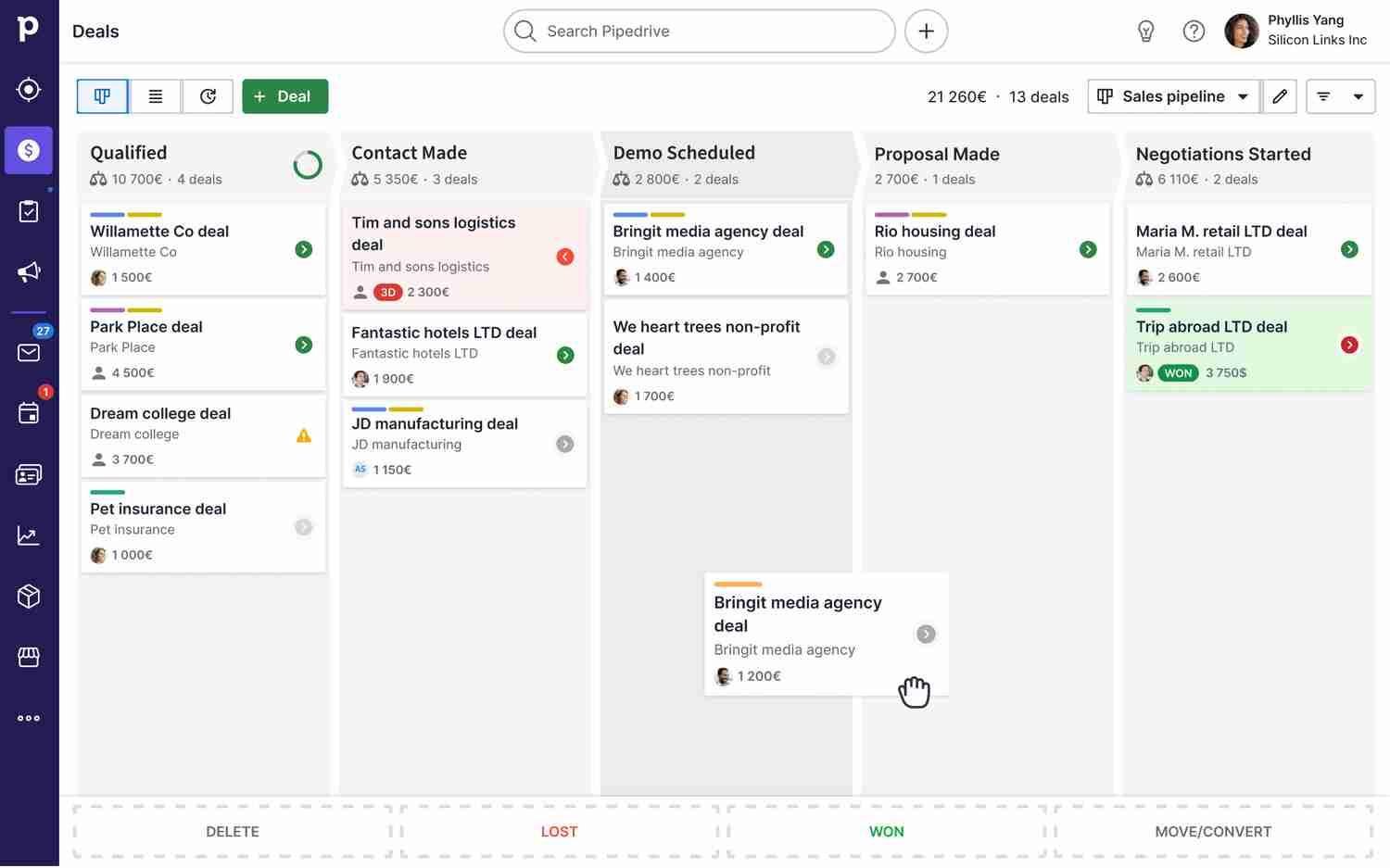
The platform is easy to set up, meaning you’ll spend less time on implementation and more time selling.
Pipedrive also integrates with popular apps like Google Workspace, Trello, and Zapier, ensuring it fits seamlessly into your workflow.
If you value an intuitive interface, quick setup, and sales-focused tools without the heavy pricing of Salesforce, Pipedrive is a compelling alternative to consider.
Related: Pipedrive review: key features, pros, cons, and pricing
Insightly
Insightly, which is a tool like Salesforce, combines CRM, project management, and marketing tools into one platform, making it a great fit if you’re looking for more than just sales management.
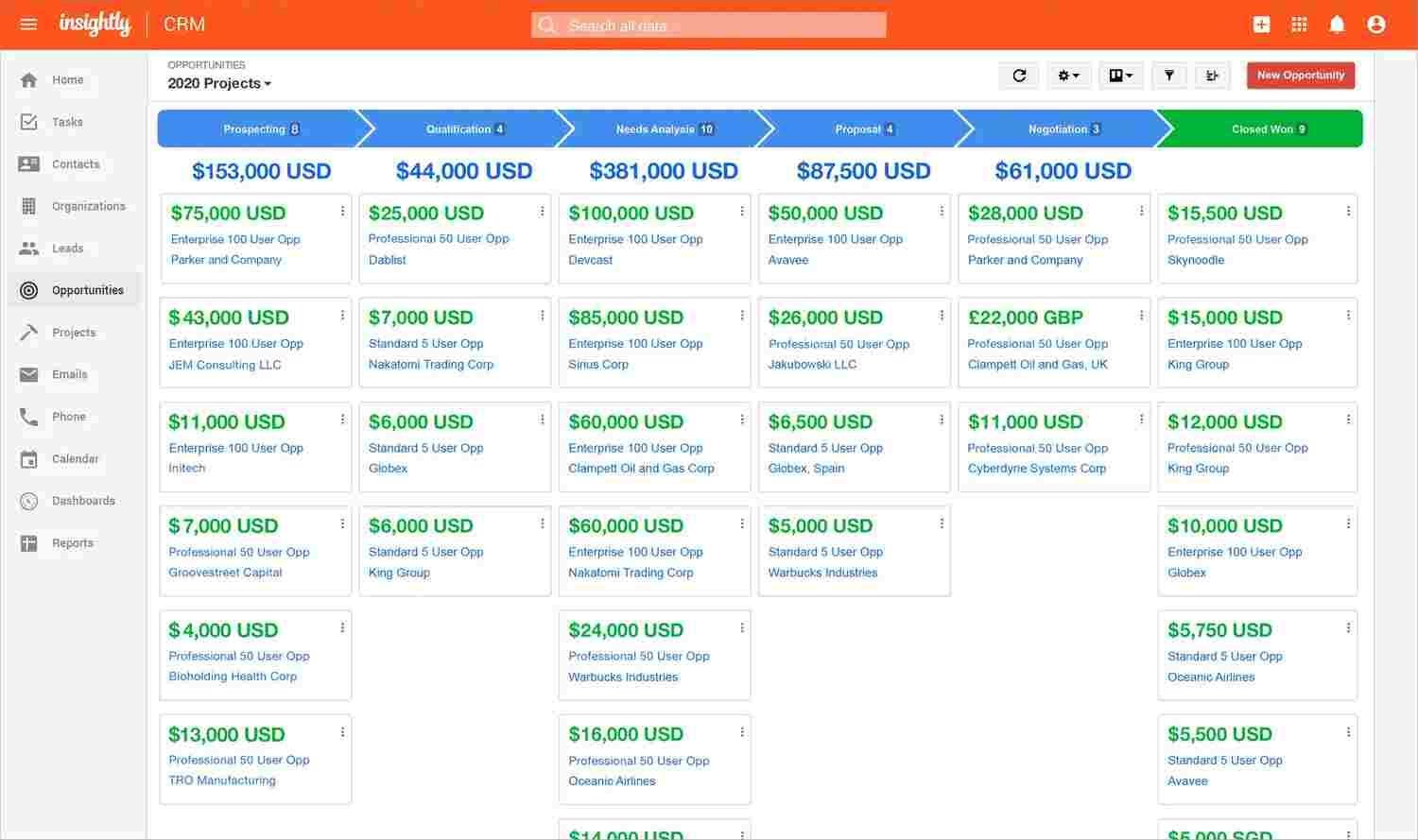
With Insightly, you can manage leads, track customer interactions, and run marketing campaigns all from a single dashboard.
It also includes built-in project management features, allowing you to link tasks and projects directly to sales opportunities—a unique feature that simplifies post-sales follow-ups.
Insightly integrates with popular apps like Gmail, Microsoft 365, and Slack, ensuring it fits smoothly into your workflow.
Its ease of use and modular pricing make it accessible to businesses that want to avoid the high costs and complexity of Salesforce.
If you need a CRM that blends sales, projects, and marketing tools, Insightly is a strong solution among alternatives to Salesforce worth considering.
Summing up: Salesforce alternatives
Ultimately, the best CRM solution for you will depend on your unique business objectives, budget, and the specific features that matter most.
By evaluating Salesforce alternatives, you can find a tool that not only meets your needs but also empowers you to foster better customer relationships, enhance productivity, and drive sales growth.
If I were to recommend just one option for large enterprises, then I’d say that Hubspot is closest to Salesforce in terms of scalability and feature set. And if you’re a small business, you can’t go wrong with Zoho CRM.
But take the time to explore your options fully; the right choice may lead to significant improvements in your overall business performance.
Did I miss anything? Did you try these Salesforce competitors? Do you have any questions or comments? Share your thoughts below in the comments section.





